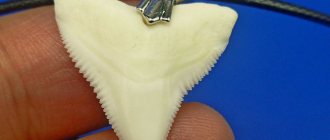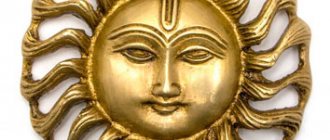Amulet for lovers
Oh, these ninth graders! According to my own feelings, they are classified into several categories: the elite, with whom everyone wants to know; the court retinue, the kind of firecrackers of the queens, picking up the scraps after them; detached and freedom-loving loners; unfortunate whipping girls; Mother Teresa. The latter is entirely about our today’s heroine, the smart and pretty Marina.
Marina, as long as she could remember, always felt sorry for everyone and everything: cats, dogs, crows, frogs and even the hamster Shurik, who lived with her friend Milka in a three-liter jar.
Therefore, when as many as four boys from the class fall in love with Marina, such an event immediately shocks the public. After all, this is unthinkable! Blessed? In all such proper quietness? No. Absolutely impossible. Actually, the whole plot revolves around a strange event, from which the heroine is not only not delighted, but also openly suffers. Then he spits on everyone and gives himself wholeheartedly to the one who is nicer. It immediately becomes clear that everything is absolutely against the happiness of the lovers. And as a result, a happy ending. Quite banal and predictable.
A shadow ran across his face, he jumped off the railing and immediately turned to the side, barely restraining the feelings bursting from his chest. Mitrofanova handed him her bag of groceries, and they walked towards her entrance.
The book is quite textured in its atmosphere. As I read, I plunged headlong into the nineties. Golden school years! Autumn ball, New Year's party, spring break, exams, graduation, summer. Physics, chemistry, algebra, geometry. Discos, the Gas Strip, strong Baltic in the dingy entrance in front... Well, this is already getting me. Dear schoolgirls, if you are reading this, know: there is no beer at school! No beer, no discos, no sex. No, no at all. Study, study and study again, as you know who bequeathed to us! Plus, I was incredibly pleased with the thin thread that ran through the plot of the theme of relationships between fathers and children. Brings back memories. Let's summarize. Today, a friend asked me why this book attracted me. How to say... Perhaps because she is all so girlish, and sometimes you want that? Or is it because our author, a Russian, has not spoiled my compatriots with attention for a long time? Perhaps because the events take place in my favorite city - St. Petersburg. And most likely because this book has a soul. Have you come across books with soul at least once? I've met.
Amulet for lovers – Lubenets Svetlana – Page 1
Change font size:
Svetlana Lubenets
Amulet for lovers
Chapter 1
Strange Marina and the arrangement of characters around her
The cat was pitiful, skinny, and also had a completely bare belly. Marina knew that cats’ hair can fall out not from terrible diseases, but simply from a lack of vitamins. This pretty girl, along with her bare belly, also had such a sweet face with sad yellow eyes that Marina would definitely have taken her home if two cats, Musya and Busya, had not already lived there.
Two years ago, she found Musya in the most natural way in a trash heap, having caught him devouring rusty herring tails. When Musya was washed from the herring and dirt, she turned into a red half-Persian with a cheerful little white face. The cat's cheeks were decorated with neat round red spots, for which she initially received the nickname Matryoshka. It was inconvenient to pronounce this rather cute, but long name, so Marina one day hastily renamed her Musya. The cat really didn’t care about the renaming, because, having lived most of her adult life nameless, she fundamentally did not respond to either Matryoshka or Musya, but she responded instantly and without interruption to the word “na!”
Last year, Busya herself came to the Mitrofanovs’ apartment, slipping through Marina’s legs into the hallway, where she settled. She was a simple mongrel breed, smooth-haired, gray-striped. Marina loved both cats with the same passionate love, despite the obvious difference in origin. The half-breed Musya despised the mongrel Busya and never even dined with her in Mitrofanov’s kitchen. True, the real reason for this may have been not so much the dictates of part of her noble blood, but rather the strong-willed and shameless character of Busya, who did not let anyone near the food until she was sated herself. Marina’s mother, gritting her teeth, most heroically tolerated the presence of two cats in the house, but would hardly have been able to tolerate the appearance of a third, even such a wonderful white one, with black uneven spots on the back. Marina once again scratched the bare-faced cutie behind the ear, who immediately narrowed her yellow eyes with readiness and purred. The girl sighed heavily, lightly threw the cat off her lap and went home to Busya and Musa.
We said so much about Busya and Musya and about the nameless black and white cat, because they are the ones who characterize Marina best. Marina Mitrofanova, as long as she could remember, always felt sorry for everyone and everything: cats, dogs, crows, frogs and even the hamster Shurik, who lived with her friend Milka in a three-liter jar. Marina felt that Shurik was cramped in the bank and gave him full possession of the large wire cage in which her elderly guinea pig Mashka had recently rested in bed.
Marina felt sorry not only for animals, birds and amphibians. For example, she also felt sorry for a rather disgusting-looking old woman who chose the entrance to a nearby supermarket for begging. Marina always put money left over from school lunches into her dirty plastic yogurt cup, despite the fact that she once saw with her own eyes that the old woman was much richer than her parents, carburetor designers. Marina was standing in line at the supermarket right behind the old woman when she poured change out of her yogurt cup, two pockets of a tattered child's astrakhan fur coat, and another incredibly dirty bag of unknown origin onto the cash register plate. Having counted the old lady's change with deft fingers, the cashier gave her one thousand and thirty rubles in cash at a time. Quickly multiplying in her mind the old woman’s daily earnings, rounded down to the nearest thousand, by twenty calendar days (giving her, due to her advanced age, ten whole days off), Marina received a very decent figure for people with average incomes, as much as twenty thousand. The designers of the carburetor plant earned, of course, more per month, but not much. But if you think that since then Marina has stopped putting her pitiful change into the old woman’s glass, then you are very mistaken. She still continued to serve to the old woman. It seemed to her that if she passed by, then something bad would definitely happen to the old woman, for example, no one would give her anything anymore, and then she would certainly die of grief, because it was unlikely from hunger.
We had to devote so much time to the vile old woman, because now you will understand the irresistible attraction of Marina Mitrofanova to Rybarev and Krivoruchko. Although, perhaps, we started talking about Rybarev and Krivoruchko prematurely. It makes sense to tell one more thing first, namely: from kindergarten, Marina pitied and cared for restless, ugly and rejected children. For example, in the younger group of kindergarten No. 17, no one wanted to be paired with Yura Lyakin, who regularly peed in the bed during quiet time and always smelled bad. Marina always came to Lyakin’s rescue when he lacked a pair. At that time, she even had colorful dreams about Yura: how she bathed him in a red basin, like a naked doll, then wrapped him in a sky-blue terry sheet and put him to sleep in a clean, fresh bed on crisp linen with a yellow flower. It was Yura Lyakin who was Marina’s first love, although he had no idea about it and therefore, in his dry periods, sometimes he even beat her, although, to his credit, not much.
Marina's second love was Felik Livshits. She was seated at the same desk with him in first grade. Small and terribly curly-haired Felik was pulled, pinched and teased by Nosopyra. Livshits’s nose was indeed not weak: with an impressive hump and steeply carved nostrils. Marina immediately took Felik under her protection and loved him until the ninth grade. At the current ceremony dedicated to the holiday of the First of September, Livshits, unexpectedly for everyone, appeared very elongated, with somewhat developed, fashionably cut curls and a nose that was no longer too big for him. The girls of Marinino 9th "G" immediately decided:
1) That Livshits became like a biblical character.
2) That it no longer suits him to be called some kind of Nosy or even Felik, and therefore it is worth calling him by his full name - Felix, and they began to vying with each other to make eyes at him.
Marina immediately lost interest in Livshits and even moved from her old place, where she had been sitting for seven whole years, to her friend Milka Konstantinova. Lena Slesarenko immediately fluttered into Marinino’s place to join Felix, and Margarita Grigorovich, nicknamed Margo, was late, and therefore she had to be content with the not very expressive Alyosha Porokhovshchikov.
For some time, Marina’s compassionate heart remained empty, until she realized that in their 9th “G” there were at least two more who needed her care and protection. Thus, we finally got to Rybarev and Krivoruchko.
Bogdan Rybarev, who, depending on the circumstances, was called either Pisces or Rybar, was an absolutely gray, inconspicuous C-grade student, at times straying into absolute “pairs,” and at the same time the son of the school cleaning lady Aunt Lyuda. Ilya Krivoruchko, on the contrary, was a cram student, an excellent student and the son of the director of the Carlson children's toy factory. It is clear that he had to respond to Crooked Handle or, at worst, to Carlson.
The fisherman took the vacant place in Marina’s heart due to his poverty. No one at school dressed worse than him, except for all the little kids who had not yet grown to realize the truth of the first part of the saying “one meets people by their clothes.” Rybar's mother, the cleaning lady Aunt Lyuda, had, in addition to Bogdan, three more Rybars: twins Olya and Tolya, who were in fifth grade, and first-grader Romochka. All the Fishermen, as one, were dressed in pitiful, washed-out blouses and jeans from second-hand stores and were equally despised by schoolchildren of their age category. At first, Marina began to feel sorry for all the Fishermen en masse, but then she decided not to spread herself thin and focus on Bogdan. She herself offered him daily homework in any subject to copy, and during tests she sent him notes with solutions to equations and problems of his version, although she herself was sitting on a different one. During dictations she sat with Bogdan at the same desk. The class teacher, who was also a little mermaid, even looked at this approvingly, because otherwise Rybar would make so many mistakes that his work would have to be assessed with a negative number. It must be said that Bogdan Rybar accepted Marina’s unexpected blessings benevolently and even got angry if she suddenly fell ill on the eve of the test or dictation.
Amulet for lovers | Page 1 | Online library
Svetlana Lubenets
Amulet for lovers
Chapter 1
Strange Marina and the arrangement of characters around her
The cat was pitiful, skinny, and also had a completely bare belly. Marina knew that cats’ hair can fall out not from terrible diseases, but simply from a lack of vitamins. This pretty girl, along with her bare belly, also had such a sweet face with sad yellow eyes that Marina would definitely have taken her home if two cats, Musya and Busya, had not already lived there.
Two years ago, she found Musya in the most natural way in a trash heap, having caught him devouring rusty herring tails. When Musya was washed from the herring and dirt, she turned into a red half-Persian with a cheerful little white face. The cat's cheeks were decorated with neat round red spots, for which she initially received the nickname Matryoshka. It was inconvenient to pronounce this rather cute, but long name, so Marina one day hastily renamed her Musya. The cat really didn’t care about the renaming, because, having lived most of her adult life nameless, she fundamentally did not respond to either Matryoshka or Musya, but she responded instantly and without interruption to the word “na!”
Last year, Busya herself came to the Mitrofanovs’ apartment, slipping through Marina’s legs into the hallway, where she settled. She was a simple mongrel breed, smooth-haired, gray-striped. Marina loved both cats with the same passionate love, despite the obvious difference in origin. The half-breed Musya despised the mongrel Busya and never even dined with her in Mitrofanov’s kitchen. True, the real reason for this may have been not so much the dictates of part of her noble blood, but rather the strong-willed and shameless character of Busya, who did not let anyone near the food until she was sated herself. Marina’s mother, gritting her teeth, most heroically tolerated the presence of two cats in the house, but would hardly have been able to tolerate the appearance of a third, even such a wonderful white one, with black uneven spots on the back. Marina once again scratched the bare-faced cutie behind the ear, who immediately narrowed her yellow eyes with readiness and purred. The girl sighed heavily, lightly threw the cat off her lap and went home to Busya and Musa.
We said so much about Busya and Musya and about the nameless black and white cat, because they are the ones who characterize Marina best. Marina Mitrofanova, as long as she could remember, always felt sorry for everyone and everything: cats, dogs, crows, frogs and even the hamster Shurik, who lived with her friend Milka in a three-liter jar. Marina felt that Shurik was cramped in the bank and gave him full possession of the large wire cage in which her elderly guinea pig Mashka had recently rested in bed.
Marina felt sorry not only for animals, birds and amphibians. For example, she also felt sorry for a rather disgusting-looking old woman who chose the entrance to a nearby supermarket for begging. Marina always put money left over from school lunches into her dirty plastic yogurt cup, despite the fact that she once saw with her own eyes that the old woman was much richer than her parents, carburetor designers. Marina was standing in line at the supermarket right behind the old woman when she poured change out of her yogurt cup, two pockets of a tattered child's astrakhan fur coat, and another incredibly dirty bag of unknown origin onto the cash register plate. Having counted the old lady's change with deft fingers, the cashier gave her one thousand and thirty rubles in cash at a time. Quickly multiplying in her mind the old woman’s daily earnings, rounded down to the nearest thousand, by twenty calendar days (giving her, due to her advanced age, ten whole days off), Marina received a very decent figure for people with average incomes, as much as twenty thousand. The designers of the carburetor plant earned, of course, more per month, but not much. But if you think that since then Marina has stopped putting her pitiful change into the old woman’s glass, then you are very mistaken. She still continued to serve to the old woman. It seemed to her that if she passed by, then something bad would definitely happen to the old woman, for example, no one would give her anything anymore, and then she would certainly die of grief, because it was unlikely from hunger.
We had to devote so much time to the vile old woman, because now you will understand the irresistible attraction of Marina Mitrofanova to Rybarev and Krivoruchko. Although, perhaps, we started talking about Rybarev and Krivoruchko prematurely. It makes sense to tell one more thing first, namely: from kindergarten, Marina pitied and cared for restless, ugly and rejected children. For example, in the younger group of kindergarten No. 17, no one wanted to be paired with Yura Lyakin, who regularly peed in the bed during quiet time and always smelled bad. Marina always came to Lyakin’s rescue when he lacked a pair. At that time, she even had colorful dreams about Yura: how she bathed him in a red basin, like a naked doll, then wrapped him in a sky-blue terry sheet and put him to sleep in a clean, fresh bed on crisp linen with a yellow flower. It was Yura Lyakin who was Marina’s first love, although he had no idea about it and therefore, in his dry periods, sometimes he even beat her, although, to his credit, not much.
Marina's second love was Felik Livshits. She was seated at the same desk with him in first grade. Small and terribly curly-haired Felik was pulled, pinched and teased by Nosopyra. Livshits’s nose was indeed not weak: with an impressive hump and steeply carved nostrils. Marina immediately took Felik under her protection and loved him until the ninth grade. At the current ceremony dedicated to the holiday of the First of September, Livshits, unexpectedly for everyone, appeared very elongated, with somewhat developed, fashionably cut curls and a nose that was no longer too big for him. The girls of Marinino 9th "G" immediately decided:
1) That Livshits became like a biblical character.
2) That it no longer suits him to be called some kind of Nosy or even Felik, and therefore it is worth calling him by his full name - Felix, and they began to vying with each other to make eyes at him.
Marina immediately lost interest in Livshits and even moved from her old place, where she had been sitting for seven whole years, to her friend Milka Konstantinova. Lena Slesarenko immediately fluttered into Marinino’s place to join Felix, and Margarita Grigorovich, nicknamed Margo, was late, and therefore she had to be content with the not very expressive Alyosha Porokhovshchikov.
For some time, Marina’s compassionate heart remained empty, until she realized that in their 9th “G” there were at least two more who needed her care and protection. Thus, we finally got to Rybarev and Krivoruchko.
Bogdan Rybarev, who, depending on the circumstances, was called either Pisces or Rybar, was an absolutely gray, inconspicuous C-grade student, at times straying into absolute “pairs,” and at the same time the son of the school cleaning lady Aunt Lyuda. Ilya Krivoruchko, on the contrary, was a cram student, an excellent student and the son of the director of the Carlson children's toy factory. It is clear that he had to respond to Crooked Handle or, at worst, to Carlson.
The fisherman took the vacant place in Marina’s heart due to his poverty. No one at school dressed worse than him, except for all the little kids who had not yet grown to realize the truth of the first part of the saying “one meets people by their clothes.” Rybar's mother, the cleaning lady Aunt Lyuda, had, in addition to Bogdan, three more Rybars: twins Olya and Tolya, who were in fifth grade, and first-grader Romochka. All the Fishermen, as one, were dressed in pitiful, washed-out blouses and jeans from second-hand stores and were equally despised by schoolchildren of their age category. At first, Marina began to feel sorry for all the Fishermen en masse, but then she decided not to spread herself thin and focus on Bogdan. She herself offered him daily homework in any subject to copy, and during tests she sent him notes with solutions to equations and problems of his version, although she herself was sitting on a different one. During dictations she sat with Bogdan at the same desk. The class teacher, who was also a little mermaid, even looked at this approvingly, because otherwise Rybar would make so many mistakes that his work would have to be assessed with a negative number. It must be said that Bogdan Rybar accepted Marina’s unexpected blessings benevolently and even got angry if she suddenly fell ill on the eve of the test or dictation.










